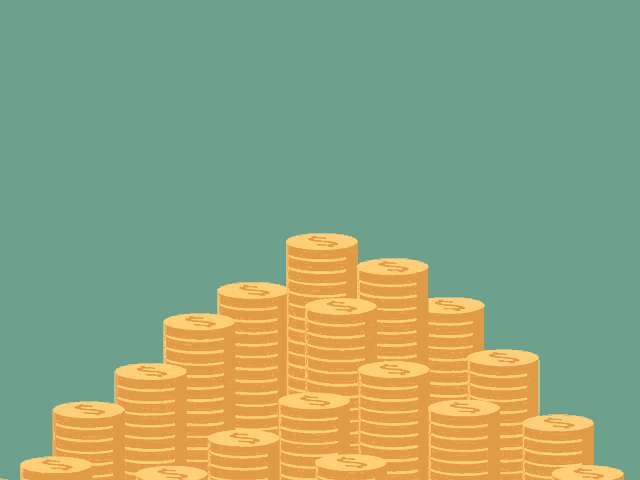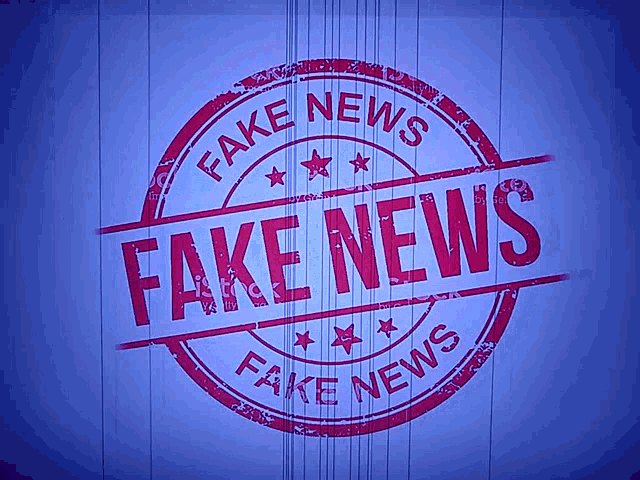
Unsplash

Sábado, 15 de marzo, 2025.
La información es todo aquello que nos permite conocer, entender o interpretar algo sobre el mundo que nos rodea. Es como un puente entre lo que sucede y nuestra capacidad de darle sentido. Puede ser un dato simple, como la hora que marca el reloj, o algo más complejo, como una explicación sobre cómo funciona el universo.
Piensa en ella como piezas de un rompecabezas: a veces son fragmentos sueltos, otras veces se juntan para formar una imagen clara. La información está en todas partes, en lo que vemos, escuchamos, leemos o incluso intuimos, y depende de cómo la usemos para que se convierta en conocimiento. En esencia, es el flujo constante de señales que nos ayuda a navegar la realidad, desde una conversación casual hasta un descubrimiento científico.
Desde que los seres humanos comenzaron a comunicarse, la información ha sido el motor del progreso. Al principio, todo dependía de la tradición oral. Historias, conocimientos y experiencias se transmitían de generación en generación a través de relatos hablados. Este método tenía una gran riqueza cultural, pero también era frágil, ya que cualquier alteración en la narración podía cambiar el mensaje original.
El surgimiento de la escritura transformó por completo la manera en que la información era preservada y compartida. Las primeras civilizaciones, como los sumerios, desarrollaron sistemas de escritura en tablillas de arcilla, permitiendo registrar transacciones, leyes y conocimientos científicos. Egipcios y chinos perfeccionaron estos métodos con papiros y seda, facilitando la movilidad de la información y su acceso a más personas.
Con el tiempo, los pergaminos y los códices reemplazaron estos soportes primitivos, y las grandes bibliotecas, como la de Alejandría, se convirtieron en centros de conocimiento. Sin embargo, la información seguía siendo un privilegio de pocos, ya que su reproducción era manual y requería una enorme inversión de tiempo y recursos.

Tenor
La invención de la imprenta por Gutenberg marcó un punto de inflexión. Los libros pudieron producirse en grandes cantidades, lo que permitió la difusión masiva del conocimiento. La educación dejó de estar reservada para las élites, y los movimientos intelectuales, como el Renacimiento y la Ilustración, florecieron gracias a la circulación de nuevas ideas.
Con la llegada de la radio, el teléfono y la televisión, la información comenzó a viajar más rápido y a llegar a más rincones del mundo. Las noticias dejaron de depender exclusivamente de los periódicos y adquirieron inmediatez. Sin embargo, fue con la revolución digital cuando la información alcanzó su máxima expansión.

Tenor
Internet permitió que cualquier persona pudiera acceder a conocimientos que antes eran inaccesibles. La interconectividad global transformó la forma en que las sociedades se comunican, aprenden y toman decisiones. La información se volvió instantánea, pero también surgieron nuevos desafíos, como la manipulación de datos y la propagación de noticias falsas.

Tenor
El conocimiento ha sido siempre una herramienta clave para el desarrollo humano. Desde los primeros símbolos tallados en piedra hasta la inteligencia artificial que filtra contenidos en la actualidad, la manera en que la información se almacena y se comparte sigue evolucionando, moldeando el mundo en el que vivimos y el futuro que nos espera.
Crear un equilibrio entre el derecho de acceso a la información y las responsabilidades que esto conlleva es fundamental en cualquier sociedad. La información es poder, y la capacidad de acceder a ella sin restricciones injustificadas permite que las personas tomen decisiones informadas, participen en la vida pública y exijan transparencia a las instituciones y este derecho no es absoluto porque debe ejercerse con responsabilidad.
Por un lado, los gobiernos y las entidades privadas tienen la obligación de garantizar que la información relevante, especialmente aquella de interés público, sea accesible de manera clara, veraz y oportuna. Esto incluye datos sobre políticas públicas, uso de recursos y procesos de toma de decisiones. En muchas legislaciones, el acceso a la información es un derecho protegido, lo que permite que cualquier ciudadano solicite y obtenga documentos sin necesidad de justificar su petición.
Existen límites. No toda la información puede ser divulgada indiscriminadamente. La privacidad de las personas, la seguridad nacional y el secreto industrial son algunas de las razones por las que ciertos datos deben mantenerse en reserva. Equilibrar la transparencia con la protección de información sensible es un reto constante.
La responsabilidad no recae solo en quienes administran la información, sino también en quienes la consumen y la difunden. En la era digital, donde la desinformación se propaga con facilidad, es crucial verificar fuentes, contrastar datos y no contribuir a la difusión de noticias falsas. Tener acceso a la información no significa únicamente recibirla, sino también comprenderla y utilizarla de manera ética.
El acceso a la información no solo fortalece la democracia y fomenta la participación ciudadana, sino que también impulsa el desarrollo, la innovación y el conocimiento. Sin embargo, el uso irresponsable o malintencionado de la información puede generar desinformación, manipulación y conflictos. Por ello, más allá del derecho a acceder, también es esencial la responsabilidad de manejar la información con criterio y sentido crítico.
El acceso a la información nunca ha sido tan amplio como en la actualidad. Con un simple clic, cualquier persona puede leer noticias de cualquier parte del mundo, ver videos en tiempo real o compartir contenido con millones de personas. Sin embargo, la facilidad con la que circula la información también implica una gran responsabilidad. No todo lo que aparece en los medios es verídico, y el impacto de difundir datos sin verificar puede ser significativo.
Filtrar lo que consumimos es un paso esencial para evitar caer en la desinformación. No basta con leer un titular llamativo o compartir una publicación que parece creíble. Es necesario cuestionar la fuente, contrastar la información con otros medios y, cuando sea posible, buscar documentos oficiales o investigaciones que respalden los datos. Los medios de comunicación tienen la responsabilidad de informar con rigor, pero los consumidores también deben desarrollar un pensamiento crítico para no ser víctimas de manipulación.

Tenor
Las redes sociales han acelerado el flujo de información, pero también han dado espacio a noticias falsas y contenido sesgado. Muchas veces, lo que se comparte no busca informar, sino generar reacciones emocionales que refuercen ciertas creencias. La polarización que se observa en muchas sociedades es, en parte, consecuencia del consumo acrítico de información. Es fácil caer en la trampa de leer solo aquello que confirma nuestras ideas y rechazar lo que las contradice, sin analizar los hechos con objetividad.
El manejo responsable de la información también implica considerar las consecuencias de lo que se difunde. Compartir rumores sobre eventos sin confirmar puede generar pánico innecesario. Reproducir noticias tergiversadas puede contribuir a la desinformación generalizada. Incluso en temas cotidianos, es importante verificar antes de dar por cierto algo que se ha visto en un video editado o en un fragmento sacado de contexto.
La educación mediática es clave para aprender a distinguir entre información confiable y contenido manipulado. Comprender cómo funcionan los algoritmos que seleccionan lo que vemos en nuestras pantallas ayuda a ser más conscientes de los sesgos a los que estamos expuestos. No se trata de desconfiar de todo, sino de asumir un rol activo en la forma en que consumimos y compartimos datos.
En un mundo donde la información es poder, la responsabilidad de gestionarla con criterio es más importante que nunca. Elegir bien qué creer, qué difundir y cómo interpretar lo que recibimos puede marcar la diferencia entre una sociedad informada y una atrapada en la desinformación.
Esta fue una publicación de sábado.
Gracias por pasarse a leer un rato, amigas, amigos, amigues de Blurt.
Que tengan un excelente día y que Dios los bendiga grandemente.
Saludines, camaradas blurtinenses!!

Saturday, march 15th, 2025.
Information is everything that allows us to know, understand, or interpret something about the world around us. It's like a bridge between what happens and our ability to make sense of it. It can be a simple piece of information, like the time on a clock, or something more complex, like an explanation of how the universe works.
Think of it like pieces of a puzzle: sometimes they are loose fragments, other times they come together to form a clear picture. Information is everywhere—in what we see, hear, read, or even intuit—and it depends on how we use it for it to become knowledge. Essentially, it's the constant flow of signals that helps us navigate reality, from a casual conversation to a scientific discovery.
Since human beings began to communicate, information has been the engine of progress. In the beginning, everything depended on oral tradition. Stories, knowledge, and experiences were passed down from generation to generation through spoken accounts. This method was culturally rich, but it was also fragile, as any alteration to the narrative could change the original message.
The emergence of writing completely transformed the way information was preserved and shared. Early civilizations, such as the Sumerians, developed writing systems on clay tablets, allowing them to record transactions, laws, and scientific knowledge. The Egyptians and Chinese perfected these methods with papyrus and silk, facilitating the mobility of information and making it accessible to more people.
Over time, scrolls and codices replaced these primitive media, and great libraries, such as that of Alexandria, became centers of knowledge. However, information remained the privilege of the few, as its reproduction was manual and required an enormous investment of time and resources.Since human beings began to communicate, information has been the engine of progress. In the beginning, everything depended on oral tradition. Stories, knowledge, and experiences were passed down from generation to generation through spoken accounts. This method was culturally rich, but it was also fragile, as any alteration to the narrative could change the original message.
The emergence of writing completely transformed the way information was preserved and shared. Early civilizations, such as the Sumerians, developed writing systems on clay tablets, allowing them to record transactions, laws, and scientific knowledge. The Egyptians and Chinese perfected these methods with papyrus and silk, facilitating the mobility of information and making it accessible to more people.
Over time, scrolls and codices replaced these primitive media, and great libraries, such as that of Alexandria, became centers of knowledge. However, information remained the privilege of the few, as its reproduction was manual and required an enormous investment of time and resources.

Tenor
Gutenberg's invention of the printing press marked a turning point. Books could be produced in large quantities, allowing for the mass dissemination of knowledge. Education was no longer reserved for the elite, and intellectual movements, such as the Renaissance and the Enlightenment, flourished thanks to the circulation of new ideas.
With the arrival of radio, telephone, and television, information began to travel faster and reach more corners of the world. News no longer depended exclusively on newspapers and became more immediate. However, it was with the digital revolution that information reached its maximum expansion.

Tenor
The internet made it possible for anyone to access previously inaccessible knowledge. Global interconnectivity transformed the way societies communicate, learn, and make decisions. Information became instantaneous, but new challenges also emerged, such as data manipulation and the spread of fake news.

Tenor
Knowledge has always been a key tool for human development. From the earliest symbols carved in stone to the artificial intelligence that filters content today, the way information is stored and shared continues to evolve, shaping the world we live in and the future we face.
Balancing the right to access information with the responsibilities that this entails is fundamental in any society. Information is power, and the ability to access it without unjustified restrictions allows people to make informed decisions, participate in public life, and demand transparency from institutions. This right is not absolute because it must be exercised responsibly.
On the one hand, governments and private entities have an obligation to ensure that relevant information, especially that of public interest, is accessible in a clear, truthful, and timely manner. This includes data on public policies, the use of resources, and decision-making processes. In many laws, access to information is a protected right, allowing any citizen to request and obtain documents without needing to justify their request.
There are limits. Not all information can be disclosed indiscriminately. Individual privacy, national security, and industrial secrecy are some of the reasons why certain data must be kept confidential. Balancing transparency with the protection of sensitive information is a constant challenge.
Responsibility lies not only with those who manage information, but also with those who consume and disseminate it. In the digital age, where misinformation spreads easily, it is crucial to verify sources, compare data, and not contribute to the spread of fake news. Having access to information means not only receiving it, but also understanding and using it ethically.
Access to information not only strengthens democracy and encourages citizen participation, but also drives development, innovation, and knowledge. However, the irresponsible or malicious use of information can generate misinformation, manipulation, and conflict. Therefore, beyond the right to access, the responsibility to handle information with judgment and a critical eye is also essential.
Access to information has never been as broad as it is today. With a simple click, anyone can read news from anywhere in the world, watch streaming videos, or share content with millions of people. However, the ease with which information circulates also entails great responsibility. Not everything that appears in the media is true, and the impact of spreading unverified information can be significant.
Filtering what we consume is an essential step to avoid falling prey to misinformation. It's not enough to read a catchy headline or share a credible-seeming post. It's necessary to question the source, compare the information with other media, and, when possible, seek official documents or research that support the data. The media have a responsibility to report accurately, but consumers must also develop critical thinking skills to avoid falling victim to manipulation.

Tenor
Social media has accelerated the flow of information, but it has also given rise to fake news and biased content. Often, what is shared is not intended to inform, but rather to generate emotional reactions that reinforce certain beliefs. The polarization observed in many societies is, in part, a consequence of the uncritical consumption of information. It is easy to fall into the trap of reading only what confirms our ideas and rejecting what contradicts them, without objectively analyzing the facts.
Responsible information management also involves considering the consequences of what is disseminated. Sharing rumors about unconfirmed events can generate unnecessary panic. Reproducing distorted news can contribute to widespread misinformation. Even with everyday issues, it is important to verify before assuming something seen in an edited video or a fragment taken out of context as true.
Media education is key to learning to distinguish between reliable information and manipulated content. Understanding how the algorithms that select what we see on our screens work helps us become more aware of the biases to which we are exposed. It's not about distrusting everything, but rather taking an active role in the way we consume and share information.
In a world where information is power, the responsibility to manage it wisely is more important than ever. Choosing wisely what to believe, what to disseminate, and how to interpret what we receive can make the difference between an informed society and one trapped in misinformation.
This was a saturday post.
Thanks for stopping by to read for a while, Blurt friends.
Have a great day and may God bless you greatly.
Regards, comrades blurtarians!!
Translation: Deepl.com

Hello @hilaricita! 🎉
Congratulations! Your post has caught the attention of the curator @baiboua from the Blurt LifeStyle community and has received our support. 🌟
We appreciate your contribution to the community and look forward to seeing more of your amazing content! Keep sharing your experiences and inspiring others. 🚀✨